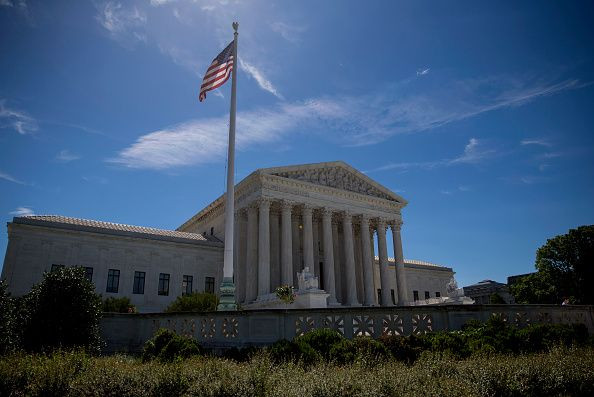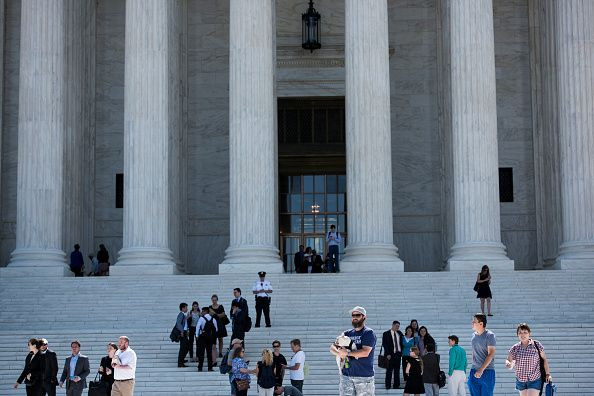Supreme Court Ruling Allows Patent And Trademark Requests For Racial Slurs, Swastika

A group of companies and individuals are attempting to register racial slurs and offensive symbols, including the N-word and the Nazi swastika, in response to a June U.S. Supreme Court decision on trademarks.
Applicants filed nine trademark requests with the U.S. Patent and Trademark Office (PTO) since the June 19 decision to negate a federal law barring discriminatory trademarks. The court ruled that the law violated free speech rights in the Constitution.
U.S. Patent and Trademark Office informed its staff June 26 that the federal law's disparagement provision can no longer deny a trademark, according to written documents seen by Reuters.
READ: What Causes Gentrification? How Redevelopment Contributes To Economic Displacement
If the applications are approved, products such as clothing, drinks and other commodities could include racial slurs.
Lawyer David Bell, a trademark specialist with law firm Haynes and Boone cited that the rulings could make things worse.
"We're now opening the door, chipping away at what's acceptable under cultural norms," he told Reuters Sunday. "I think it could be a slippery slope, where you get more people and companies thinking this is okay."
Bell said that he did not think that hate groups would capitalize on the Supreme Court ruling.
"Might the (Ku Klux Klan) or neo-Nazi groups start doing it more? They might, but I don't think trademark filings are high on their radar," he said.
Since the Supreme Court ruling, applications for trademarks including the N-word, slurs used to describe people of Asian descent and the swastika symbol were all filled, according to PTO records.
Steve Maynard, a consultant from Virginia who aids in trademark acquisition, started "Snowflake Enterprises" with investors to request disparaging trademarking following the court ruling. The company filed trademark requests for the N-word to be used on clothing, liquor and beer.
READ: Community Policing In America And Where It Went Wrong
Maynard, 50, claimed he wasn’t racist and intended to turn the slur into a brand, he told Reuters. He wanted to over-saturate the market in hopes that it would strip the slurs of their negative connotations.
"If you suppress it, you give it power," Maynard said.
"And it's currently used as a symbol of hate," Maynard stated in an NPR interview last Friday. "And if we can own the brand, we will be able to control the sale of the brand and the use of the brand as well."
He continued, "If you want to buy that swastika flag, you've got to buy it through us. And it's going to be a thousand dollars each."
Portland, Oregon-based Asian-American band "The Slants" attempted to trademark their name in 2013, to reclaim the slur. Their band name derived from a term viewed as derogatory against people of Asian descent. They failed to trademark the band name and an appeal of that denial led to the Supreme Court ruling.
John Yang, president of Asian Americans Advancing Justice, a civil rights group based in Washington D.C. cited that the Slants’ intentions to reinvent the racial slur were pure. He told Reuters that he was uncertain if the same went for new applicants trying to get their trademarks approved.
"We are concerned that once you start to peel the onion there might be different stories involved," Yang said.

© Copyright IBTimes 2024. All rights reserved.




















